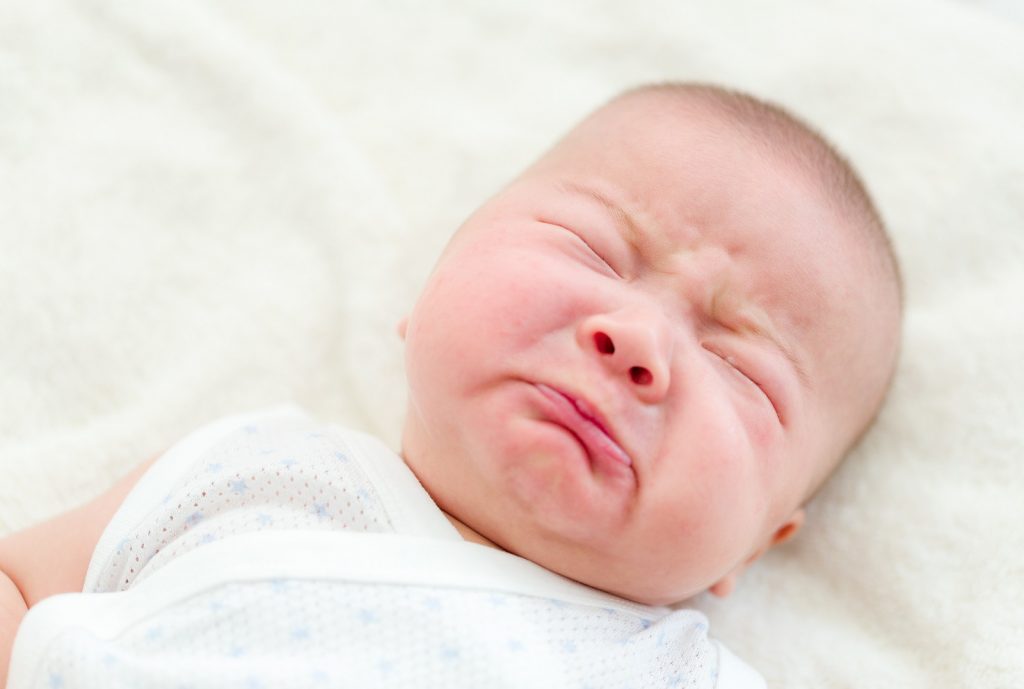
Poop Colors and Causes? A Detailed Guidance for Parents
Babies can experience a variety of different “poop colors” and the potential causes vary. The following is a list of common “poop colors” and the potential causes. If your baby’s poop seems unusual, talk to your pediatrician.
The color of your baby’s bowel movement (or BM) can give you clues about what is going on inside their little body. The below lists some common BM colors and possible causes, but keep in mind that a rainbow of other colors can result from various foods and medications your baby takes.
Before we begin, a few quick safety rules:
* Colored poop is normal—except for green. If you see green, stop everything and call the doctor.
* Don’t be concerned about the frequency of your baby’s bowel movements as long as they seem comfortable and their abdominal area doesn’t appear swollen.
* Always consult with your doctor about what you observe in your baby’s BM, especially if it is accompanied by discomfort or other symptoms.
Here are some of the most common:
Green
This is fairly common with breastfeeding infants on milk-based formulas or soy milk. In fact, it’s often referred to as “breastmilk poop.” It’s usually darker in color than other types of poop and can vary from light yellowish to dark green.
Breastfed babies’ poop normally changes as they get older, but it can be hard to tell whether an older baby has a problem by looking at the color alone. Stools that are loose or watery could indicate an intolerance or allergy, especially if there’s blood or mucus in the stool.
Yellow-green: This can be caused by eating large amounts of plants like spinach (which contains lots of iron). Green veggies like broccoli, kale, turnips, and collards can also cause green poop. Yellow-green is usually a sign of bile salt that’s not broken down properly. Eating lots of leafy green vegetables can cause problems with the absorption of bile, which is what causes this.
Is your diet causing Green Poop?
If you eat a lot of foods that have green in them, your poop may take on a greenish color. If this is the case, try cutting back on dark leafy greens and other green vegetables.
Yellow
Think about all the things yellow: cheese, eggs, etc. In short it’s caused by high levels of Bilirubin (a normal breakdown product of blood cells). It’s normal to have a little of this in the stool, but if it’s a lot you could have Gallstones or Pernicious Anemia.
Is your diet causing yellow Poop?
Typically, if you eat too much of something yellow it will cause your stool to be… well… more yellow 🙂 You can also get this type of green poop if your green leafy veggies are overcooked. Such as steamed kale instead of raw green kale.
Red
Blood is always scary to see in any type of poop but the bright red or maroon coloration can be alarming. Red can also be caused by bile (which has a reddish-brown color) mixing with stool. It may look like diarrhea but it’s not, however it could indicate an intestinal bleed. These are serious and need medical attention.
Red or maroon – Red could indicate hemorrhoids, hard stool that is scraping the back of your baby’s throat, an anal fissure (tiny tear in the skin around baby’s anus), or irritation from diarrhea or constipation. Bright red blood may also be caused by high Bilirubin levels, but it can also be a sign of other medical problems, so any heavy bleeding deserves an immediate call to the pediatrician.
Is your diet causing Red Poop?
Spinach, beets, etc are all red foods. But more importantly, meats like beef, lamb, and pork can cause this color of poop because of the type of bacteria they have in their intestines.
White
This is often seen in breastfed babies and is completely normal. It’s caused by small amounts of white milk curd passing through the baby’s system. As they get older, you’ll see it less frequently because the baby will get better at digesting and absorbing the milk.
White or grayish-white – This can be caused by eating too much dairy or foods with white coloring. Some artificial food colorings and flavors can also cause this type of stool.
Is your diet causing white Poop?
Natural white foods like cauliflower and potatoes can cause this type of poop. But it could also be a sign of an overgrowth of yeast in the digestive tract due to antibiotic use, or candida (yeast) infections that are becoming more common in infants and young children. So if you see any changes in color/texture sometimes it could be a good idea to call your pediatrician and let them know, but other times it’s normal.
Brown or Greenish-brown
This can be caused by certain foods, especially if they’re consumed in large quantities. It’s also common in breastfed babies after eating foods like beets or blueberries. If it happens often, your doctor should test your baby for iron deficiency. The stools may also have a strong odor that smells like feces due to the presence of undigested food particles.
Coffee-ground – This is sometimes a sign of blood in the stool. It’s irritating to the intestines and can make stools look darker or black.
Black
If you notice black, tarry stools (or “toots”), this may be a sign of digested blood. It can indicate that there is bleeding higher up in the digestive tract or in the stomach. Black stools could also come from certain medications, supplements or consuming large amounts of bismuth subsalicylate (e.g., Pepto-Bismol).
Black, tarry stools – Black stool can be a sign of blood in the stool, which could indicate more serious health problems like cancer or bleeding ulcers. It can also come from certain medications or supplements, or it may result from consuming iron supplements and/or large amounts of bismuth subsalicylate (e.g., Pepto-Bismol). Consuming black licorice can also cause the stool to turn black.
Black, shiny stools – Shiny or sticky black stools may be a sign that your child is consuming bismuth subsalicylate (e.g., Pepto-Bismol). This type of medication causes stools to turn black or green.
This is a problem with digesting the sugar in milk (lactose intolerance) and may also indicate an allergy to cow’s milk protein causing irritation to the intestines. When a baby has lactose intolerance, they may also have other symptoms like gas, bloating and diarrhea.
Consistency And Texture
In addition to the color of the poop, you should also check for consistency and texture. As mentioned above, a very soft stool is often a sign of diarrhea or an intestinal virus. A hard stool may be a sign of constipation or could indicate that your baby needs more fiber in his or her diet. A firm stool is typically normal, but if it’s accompanied by mucus or blood, this could indicate an infection or irritation of the lining of the intestines.
Hard Poop:
Hard stools are usually a sign of constipation caused by dehydration. Babies can become dehydrated after having diarrhea for a period of time. If the stool is hard and does not pass after an extended period of time, your pediatrician may ask to examine your baby’s rectal area (anoscopy) to make sure everything is okay.
Thick not-soft poop
This consistency is often a sign of constipation, but could also be caused by certain juices or juice combinations with specific food items, like grapes and pineapple. It can also be from eating too many dairy products.
Diarrhea or extremely soft-formed poop
This can also be caused by eating too much dairy, like ice cream or frozen yogurt. Diarrheal illness (viral or bacterial) is another cause of abnormal stools. If the diarrhea contains mucus and/or blood, this could indicate infection and/or irritation of the intestinal lining.
Powdery or pasty poop
This type of stool may be a sign of rectal bleeding, although this is unlikely in children. It can also be caused by certain medications and supplements like iron supplements and bismuth subsalicylate (e.g., Pepto-Bismol), and it may indicate that your baby is not digesting food properly.
Babies who are constipated often have poop that looks like little pellets or balls, or it may even look like rabbit droppings. If your baby has been constipated for a while, the poops will be extremely hard and dry. Babies may become gassy from having a bowel movement. A gassy baby may also have a swollen belly, fussiness and trouble sleeping. You can help relieve your baby’s gassiness by burping him or her after feeds, changing your baby’s diaper more frequently, not overfeeding your baby and keeping the diaper loose as possible to avoid irritation from poop sticking on the skin of the buttocks.
Blood in Poop
If your baby is pooping blood, this could indicate that he or she has tears in the anus or rectum. This can happen during a bowel movement when pressure is put on the area with the hard poop. A doctor will need to examine your baby to assess what might be causing this problem and how best to solve it.
Blood in the stool is usually a sign of irritation or inflammation of the intestinal wall, which can be caused by allergic disease, infection or other medical conditions like celiac disease (sensitivity to gluten).
The presence of blood in your baby’s poop may also indicate an infection with bacteria such as E. coli, salmonella or shigella. If your baby has diarrhea, is vomiting and has blood in his or her stools, this may indicate a case of gastroenteritis (food poisoning) caused by one of these bacteria.
If you notice that your baby isn’t eating well or seems to be less active than normal, this could be another possible sign of infection.
Conclusion:
See a doctor:
- If your baby’s poop is green, black or tarry, or if it has red streaks of blood in it, you should talk to your doctor. Eating certain foods can cause colored stool, but having frequent stools that are excessively dark in color may indicate an underlying problem.
- If your baby is showing any signs of dehydration (e.g., dry lips, decreased urination, etc.), you should see your doctor. It’s important to prevent dehydration in babies since it can affect their overall well-being.
- If you notice blood or mucus in the stool, you should call your pediatrician right away. If there is also diarrhea present, this may indicate a viral infection (such as rotavirus).
- If you notice any signs of a fever with your baby’s bowel changes, be sure to call your pediatrician. Your doctor may want to look at the stool under a microscope just to make sure that everything is okay. It’s better to be safe than sorry.
In addition, if you have specific questions about your baby’s stools, talk to your pediatrician. He or she can help determine what is normal and what may be abnormal for your little one.
20 Quick Questions:
- What color should baby poop be?
For the first few days of life, your baby’s poop will be black tarry and sticky (called meconium). After that it will be greenish brown until around 3 weeks of age when it will gradually turn yellow. At about 1 month old, your baby’s stool will achieve a medium brown color. It will gradually darken to a deep brown by about 6 months of age and will remain that way until your baby is 1 year old.
- What do the colors mean?
The frequency of stools changes as your baby grows as well as what the stool looks like. If you have specific questions about what a certain color or consistency means, call your pediatrician. He or she can help you figure out if something is wrong and in need of a doctor’s attention.
- Do darker-colored stools mean there is blood present?
Not necessarily. Generally speaking, the darkness of stool is often attributed to how much time it spent in your baby’s digestive tract. Blood in stool can come from anywhere along the digestive tract, not just the lower GI. So if your baby has dark stools and you see blood, this could indicate irritation or bleeding higher up along the intestinal tract (like in the stomach or small bowel). However, if it is just feces that turned out to be very dark but there is no blood, this is usually normal.
- What is Ghost poop?
If your baby has an empty rectum (meaning no stool is in the rectum but it still feels like his or her diaper is full) and you pass gas near your baby’s buttocks, this can produce a farting noise. This is called “ghost pooping.” Many parents think their baby passed gas. However, if there is no poop in the diaper, this is not possible.
- What causes Ghost poop?
Ghost pooping is generally considered normal, particularly if your baby has several bowel movements each day that are soft or loose. Usually passing gas requires a bowel movement to occur first. A baby who doesn’t have regular stools may not be able to pass gas because nothing has moved through the intestines to get out.
- What causes green poop?
The most common cause of green stool is bile, which is produced in the liver and stored in the gallbladder. Bile is recycled by your baby’s body; it enters their intestine during digestion then goes back into the blood stream where it travels to the liver again. This process is called enterohepatic circulation. When there is a problem with this recycling process, bile may end up in the stool, resulting in green stool.
- Is green poop okay?
It’s very normal for breastfed babies to have stools that are mustard yellow or even bright green because bile makes its way into breastfed babies stools. However, if your baby is on a formula that contains iron, the stool may be darker in color.
In addition, some viruses can also cause green bowel movements because the virus upsets the normal balance of bacteria in the gut and causes an overgrowth of “bad” bacteria or yeast (Candida). This can change the color of your baby’s stool. If you suspect that something is off about your baby’s stools, call his or her pediatrician.
- What causes black poop?
Black poop can be caused by charcoal in commercial formulas. If you are breastfeeding and have taken certain medications (e.g., anti-nausea drugs) or consumed food with black licorice in it, you can pass that on to your baby through breast milk. In this case the stool will not be black but rather a greenish color from bile.
- Does softer poop mean diarrhea?
Not necessarily. If you have a baby who is exclusively breastfed, soft or mushy bowel movements are normal. Your baby’s stools will be on the softer side up until about 4-6 months of age — this is perfectly normal. If you have a baby on formula, his or her stools may be hard because iron can cause constipation.
If your baby develops diarrhea, you can expect it to be watery and/or mucousy. Vomiting may also accompany diarrhea; this occurs when the small intestine (where most absorption of nutrients takes place) is irritated or inflamed, which causes your baby to vomit up stomach acids along with the undigested food.
- What causes explosive poop?
An under-appreciation of the forces involved. But seriously, most babies start having explosive bowel movements around 6-7 months old. They tend to have a combination of both diarrhea and constipation with these bowel movements because they aren’t able to completely empty their bowels yet.
In addition, if your baby is suffering from painful gas or another form of colic, he or she may cry while going to the bathroom and end up having a “double poop” (one unpleasant for your baby and one that stinks up the entire room). This can be pretty scary if you aren’t aware that this is normal.
- What causes mucousy poop?
This is usually from an overgrowth of yeast (Candida). All babies produce yeast, but it’s usually kept in check by “good” bacteria. If your baby has an overgrowth of Candida (which can happen when he or she takes antibiotics), the yeast may change the color and consistency of the stool to a mucousy consistency.
- How do you treat green poop?
If it is from bile, as it often is in breastfed babies, it’s best to let this go on its own. In some cases changing your baby’s diet may be enough to clear up green stools as well as soft or mushy bowel movements.
- How do you treat black poop?
Black poop will usually change back to a normal color within 2-3 days after eliminating black licorice or anti-nausea drugs from your diet. If this is something you cannot do, it’s okay to continue giving your baby breast milk (with no changes in your diet).
- How do you treat explosive stools?
As with most things related to a baby, prevention is the best medicine. Try to feed him or her on a regular schedule and don’t let your baby go too long without eating. It’s also important to keep an eye on how much your baby is drinking — keep in mind that breast milk or formula counts as part of his or her daily fluid intake.
- How do you treat mucousy stools?
First, make sure your baby is still getting a good amount of breast milk. If you’ve eliminated milk products from his or her diet and the stool changes haven’t improved in 2-3 days, it’s time to call your pediatrician. Your doctor will likely recommend an antifungal medication for your baby.
- Does green poop mean your baby is sick?
Only if it persists for more than a couple of days. If you’ve eliminated milk products and the stool changes haven’t improved in 2-3 days, call your pediatrician. Your doctor will likely recommend an antifungal medication for your baby.
- Does black poop mean your baby is sick?
It can, but it’s also a common variation of normal stool color. If you’ve eliminated black licorice and the stool changes haven’t improved in 2-3 days, call your pediatrician.
- Does explosive poop mean your baby is sick?
No, but it may indicate that he or she isn’t able to get rid of the stool on his or her own. Make sure you’re feeding your baby on a regular schedule and keep an eye on how much he or she is drinking.
- Is mucousy poop bad for my baby?
If your baby is still getting a good amount of breast milk, it’s okay to let it go on its own. If you’re breastfeeding and have eliminated milk products from your diet but the stool changes haven’t improved in 2-3 days, call your pediatrician. Your doctor will likely recommend an antifungal medication for your baby.
What causes constipation?
The first thing to do if your baby is constipated is not to worry — it’s completely normal for a breastfed baby’s stools to be runny and difficult to pass. After all, breast milk is pretty liquid! If your baby’s stools are on the runny side, it may be helpful to introduce another source of iron-rich food into his or her diet. Foods high in fiber can also help relieve constipation.




